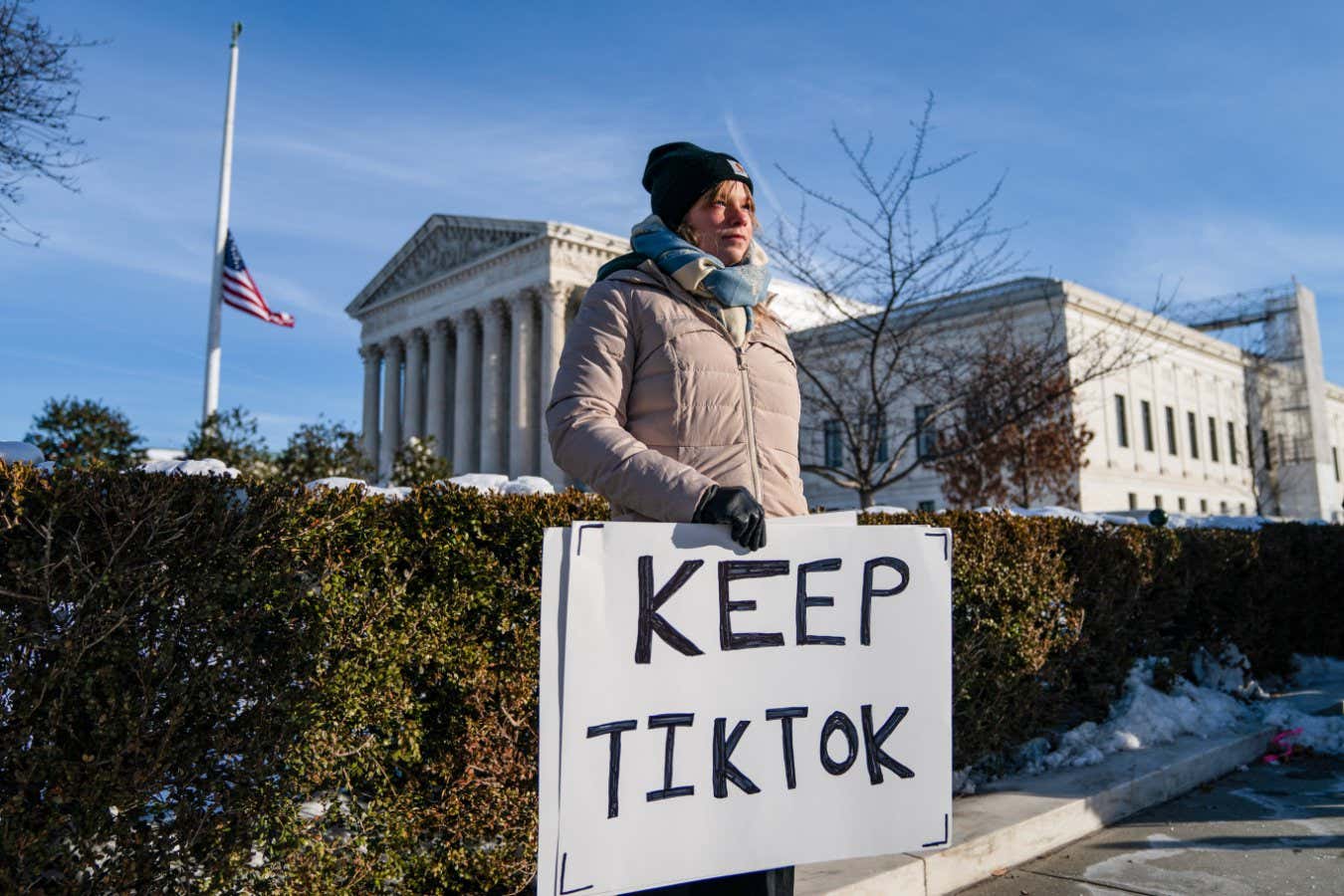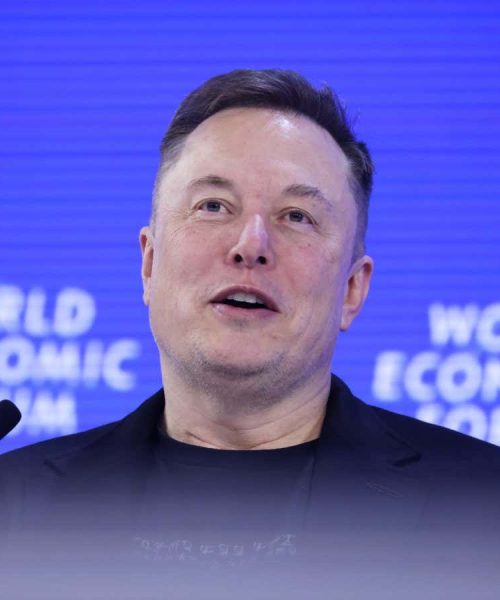
A protester holds a pro-TikTok sign in front of the US Supreme Court on 10 January 2025
Allison Robbert/The Washington Post/Getty Images
The US Supreme Court has upheld a ban on the popular video streaming app TikTok, which is set to take effect on 19 January.
The ban will require US firms to block users from accessing or updating TikTok through app stores or internet browsers – unless ByteDance, the app’s Chinese parent company, sells it to a US company by the 19 January deadline.
Advertisement
TikTok’s challenge to the law, which the Supreme Court began hearing on 10 January, argued that it violates the US Constitution’s protection of free speech. On the same day, the court heard arguments in a related case: a legal counsel representing TikTok content creators argued that a ban also infringes on those individuals’ constitutional rights.
But the US solicitor general, Elizabeth Prelogar, argued that the ban on TikTok is about preventing foreign espionage as opposed to clamping down on free speech. The US government’s case is that the Chinese government could use TikTok to collect sensitive personal data on hundreds of millions of people in the US that could be later used against them.
The Supreme Court unanimously agreed with the government’s argument, ruling against TikTok and individual creators in both cases. “There is no doubt that, for more than 170 million Americans, TikTok offers a distinctive and expansive outlet for expression, means of engagement, and source of community. But Congress has determined that divestiture is necessary to address its well-supported national security concerns regarding TikTok’s data collection practices and relationship with a foreign adversary,” the opinion states.
TikTok will shut down the app for US users on the same day the ban goes into effect, 19 January, according to Reuters. But this may not be the last twist in the legal drama.
US President Joe Biden will leave office on 20 January, the day after the ban kicks in. An official in his administration has stated that Biden won’t enforce the law, according to AP News. Instead, the strength of the ban depends on the actions of President-Elect Donald Trump’s upcoming administration.
Trump initially supported a TikTok ban during his first term as president, but has since changed his stance, expressing support for allowing the platform to continue US operations. After he takes office on 20 January, he could ask law-makers to repeal or amend the law or instruct the government to not enforce it.
Topics:





